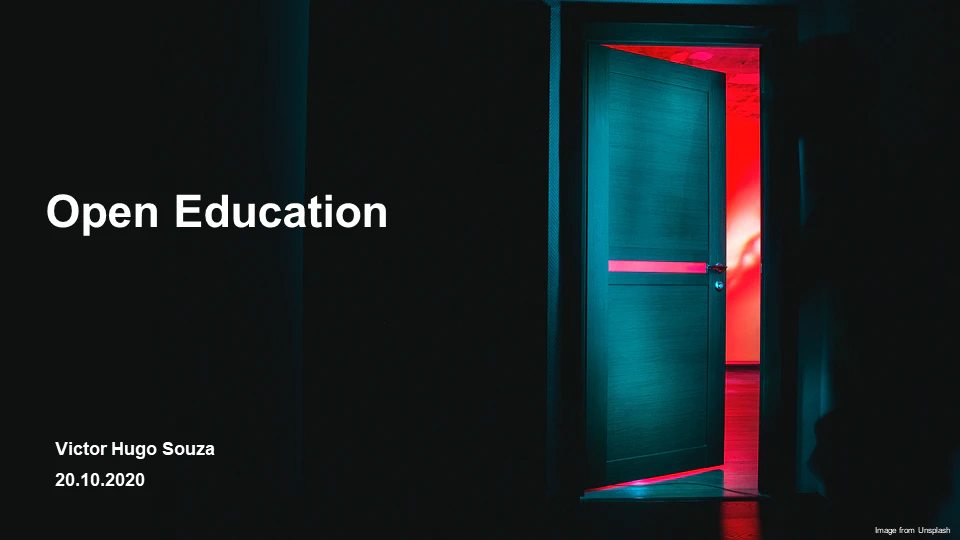Topic 2: Open Education
 Modified from Unsplash
Modified from Unsplash
This is a series of blog posts about my learning activities in the Open Networked Learning (ONL202) pedagogical course.
TL;DR
Open education is key in providing accessibility to learning. There are many online tools and local oportunities to start being an open teacher. The benefits of open education can reach beyond the expected. Yet, barriers exist and should be considered down the road to openness.
Today we talk about open education. During the ONL course activities, my first impression was that attending teachers and students were mostly concerned about the barriers and dangers in becoming open, while the benefits and impacts were hindered. Open education is paramount in providing accessibility to education resourses for those who could not access it before. To raise awareness about the possible benefits in promoting Open Education, I prepared an introductory video that you can check below:
The road to Open Education
Our (PBL group 1) prepared a presentation to introduce the road to Open Education for someone interested in joining this endeavour. You can navigate through the road from the Start, where we gathered some useful tools that can be used to prepare and make available open courses. It’s very important to remember that this is a joint effort between the teacher and the institution. Openning a course can be time consuming and requires strong support from colleagues, admnistration, and staff. On the path to openness, additional care should be taken with copyrights, ethical and privacy issues, and so on. Nonetheless, the ultimate benefits and impacts might manifest as a more inclusive and equal society, promote personal development and critical thinking, and lastly create a community of people that share and exchange knowledge.
](/post/t2-open-education/road_open_ed_hudfdf1710a36f450865ed16a2a4edfe53_1490884_cd436ba7c667a2ff36168b1075c44e97.webp)
References
A few interesting scientific publications about Open Education
-
Group 6 members: Victor Souza, Mohit Gupta, Kinaz Al Aytouni, Marcus Stensmyr, Stephanie Birkner, Hui-Chen, Erik Elfgren, Vigdis Ahnfelt, Charlotta Hilli, and Cecilia Hellekant. ↩︎